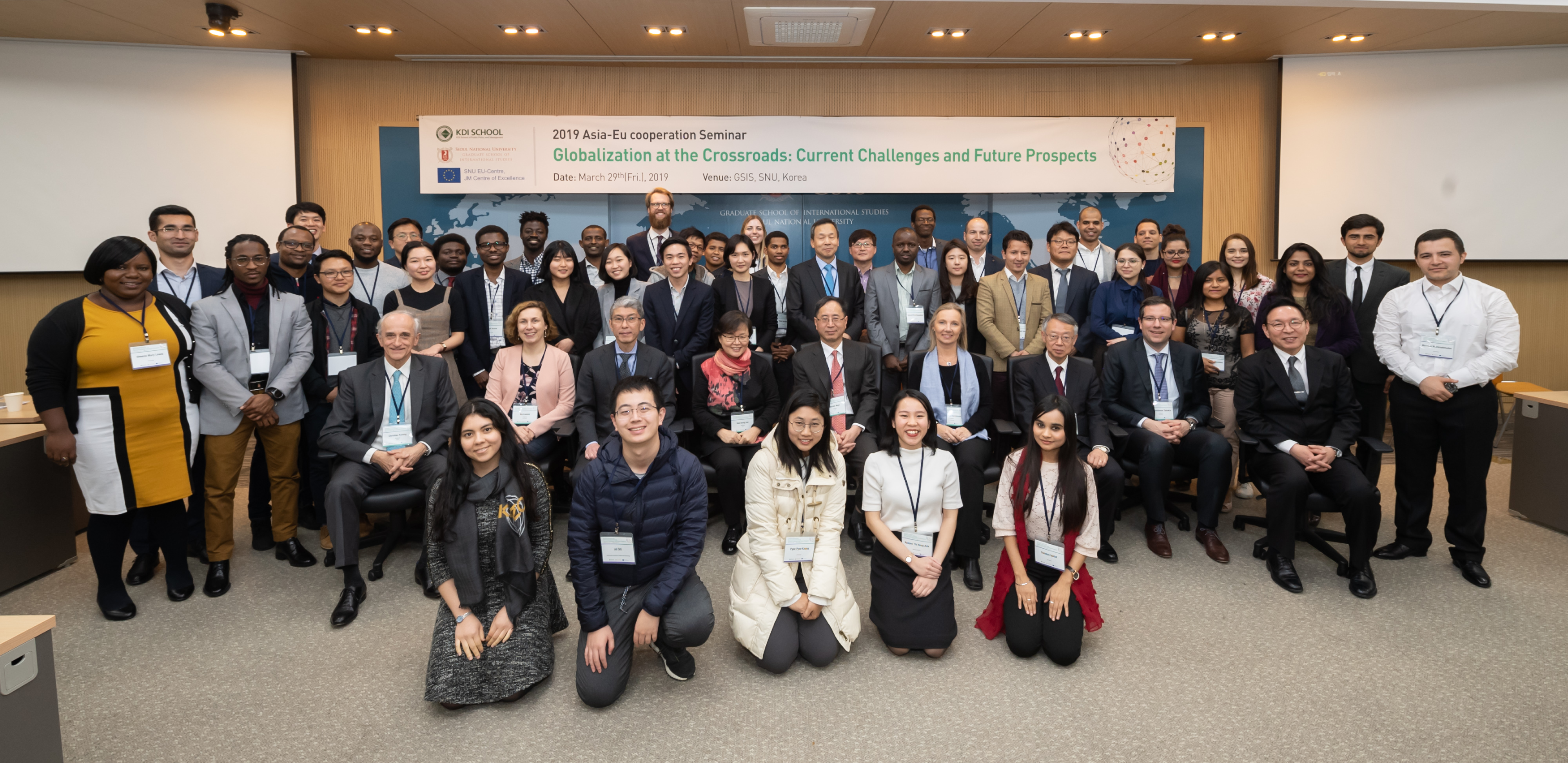Celebrating 30 years of excellence in Jean Monnet activities, SNU-EU Centre, cofounded by the Erasmus+ Programme of the European Union, and KDI School of Public Policy and Management hosted a one-day seminar titled “Globalisation at the Crossroads: Current Challenges and Future Prospects” at GSIS SNU.
Following an opening remark from Dean Jeong JongHo, of SNU GSIS, the seminar welcomed Dr. Joëlle Hivonnet, Minister Counsellor/Head of Political Section of the EU Delegation to the ROK, who addressed the 30th anniversary of Jean Monnet Activities whilst emphasising on fruitful discussions based on the three different sessions: (i) Economic Challenges and Global Economic Order, (ii) Socio-political Challenges and Global Governance, (iii) Regionalism versus Multilateralism.
Chaired by Professor Cho, Man, (KDI School), the first session “Economic Challenges and Global Economic Order” dealt with subject matters such as the 4th paradox of globalisation: hubs and new location policy of companies, a case study of Korea’s national development process on the effects of global economic shocks, and the effect and risk of US interest rate hike on daily capital flows in emerging market countries.
The second session, chaired by Professor Rhee, Yeongsup, (SNU), presented “socio-political challenges and global governance”. ‘Japan’s Immigration Policy Reform and Its Implications for Global Governance in International Migration’, ‘Europe (Re)Divided: A New Cold War’ and ‘substate and trans-sovereign nationalities in the European Borderlands’ were considered.
The third session, moderated by Professor Sohn, Wook, (KDI School), examined “regionalism versus multilateralism”. Presentees openly debated on topics such as ‘The EU-Latin America Inter-Regional Relations in the field of Human Rights’, ‘How Europe Squanders its Role in the Nuclear Conflict on the Korean Peninsula’, and ‘Preferential Trade Agreements and Antidumping Protection’.
Overall, the seminar not only enabled world-renowned experts from different fields to share their assessments on the current issues of globalisation but it also allowed them to negotiate imminent possibilities that may occur in the future.
